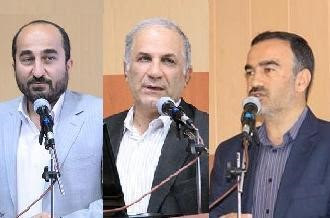Something is in the water, could it be radioactive?
After the strikes, there’s something in the water
What’s next for those Iranians unfortunate enough to be working for the SPND organisation, or living alongside them?
The entire top tier of SPND’s senior officials – more than a dozen people – was wiped out during the attacks in June. What remains of Iran’s nuclear infrastructure is buried under rubble. And the threat looms of new strikes if Iran restarts nuclear activities or moves towards pursuing a bomb, with the piquant phrase “mowing the grass” being used to describe Western non-proliferation policy vis-à-vis Iran.
Things are not looking bright if you’re an SPND employee. The only clear upside for those who weren’t targeted during June is that they’re still alive – at least for the moment. The prospect of further attacks will doubtless have many looking for the first possible opportunity to change jobs – and for those who can’t, any appeals from management to work on SPND’s more sensitive WMD-related projects will be a very hard sell to take up. The events of June taught us that Iran’s adversaries clearly will not tolerate these activities and the people who undertake them.
Still, we’re sure there are at least a few sharp-elbowed opportunists within SPND thinking that the decapitation of the old guard has opened up the rare prospect of promotion opportunities.
Who wouldn’t want to climb the ranks of SPND right now! Just think of the perks:
Free bodyguard.*
Free work car.**
The opportunity to work on Iran’s most highly classified defence research.***
Competitive salary.****
Health insurance.*****
Offices under fresh renovation.******
High-speed internet.*******
*May have limited effectiveness against incoming suicide drones.
**Flimsy Peugeot doors may concede at least some shrapnel penetration from exploding sticky bombs.
***Duration of opportunity may be time-limited by employee lifespan.
****Once supplemented by proceedings from shareholdings in dubious SPND front companies, with stock options limited to the oldest SPND cronies.
*****Coverage specifically excludes costs associated with death or injury as a result of foreign military attacks or terrorist acts by Satans, Great or Lesser.
******Renovations may be delayed by occasional destructive setbacks.
*******Monitored by at least 13 different intelligence services. And that’s just the Iranian ones!
Unfortunately, we can’t guarantee that promotion (or even continued employment) at SPND will bring any enhanced social status, given the distaste with which the general population must view those who are ultimately responsible for drawing such a destructive response from foreign powers.
And we’re sure that locals living around damaged facilities associated with SPND or Iran’s nuclear programme will be particularly upset, given the collateral damage that has occurred during the attacks – damage that is both bleedingly obvious, and damage that has been hidden by Iran’s authorities.
Indeed, any SPND employees living in Esfahan or Natanz should be particularly wary of growing enmity from local residents. We’ve heard word that Iran has allowed low-level radioactive liquid waste and industrial chemicals from the Esfahan and Natanz nuclear facilities to seep into local water sources as a consequence of botched clean-up activities after the strikes. Iranians should rightly be disturbed by this on health and environmental grounds: don’t expect three-eyed fish or imminent birth defects, but definitely expect a long-term increase in cancer risk, and a range of negative physiological consequences associated with exposure to uranium and nasty industrial substances like fluorinated compounds.
So long as Iran pursues activities that position it better to produce weapons of mass destruction, these kinds of adverse consequences will continue. And ultimately it’s SPND that must take the blame.








Comments
Post a Comment